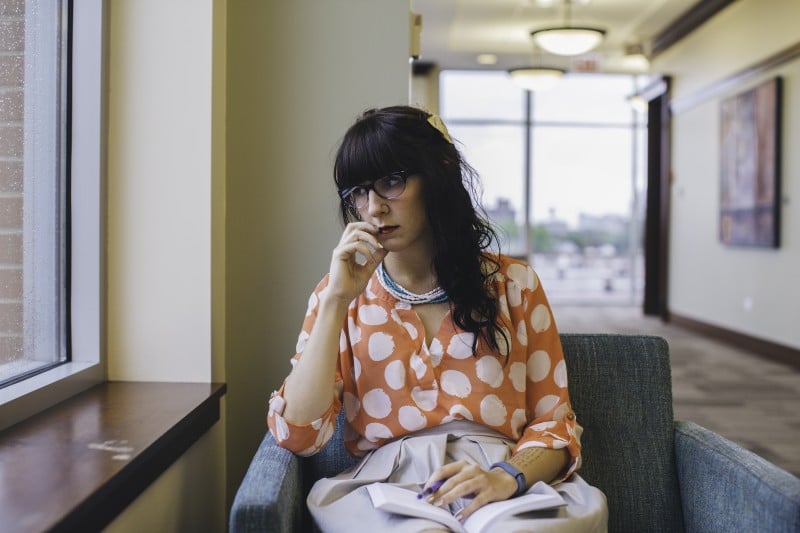
Only an opaque screen was placed between DePaul student Meagan Anderson and her accused rapist. The two were physically separated but Anderson still felt the same anxiety that had consumed her for four months.
For the next two hours in Arts & Letters Hall on an April afternoon, Anderson had to relive the details of the night in January where she says a fellow DePaul student raped her after a party, as part of the process of filing a complaint under DePaul’s code of conduct policy.
Through the guidance of Assistant Dean of Students Ellen Fingado, Anderson brought the charges in front of a panel in charge of sexual and relationship violence hearings. She did this instead of going to the police, staying silent or seeking university counseling.
Due to the amount of time that passed between her assault and when she reported the attack, Anderson felt that going through the conduct process would allow her an opportunity to get the justice she deserved.
What followed was not only an emotionally traumatic experience, Anderson said, but an even more confusing end result: Her rapist, who denied multiple requests for interviews, was suspended for just two quarters.
It was an outcome that was far shorter than the one Anderson had hoped for or expected.
Beginning the process
The desks were arranged so the panelists faced Anderson and her accused rapist. Fingado, acting as moderator, sat at the table at the front of the room that divided the professor’s space from the rows of graphite-topped tables.
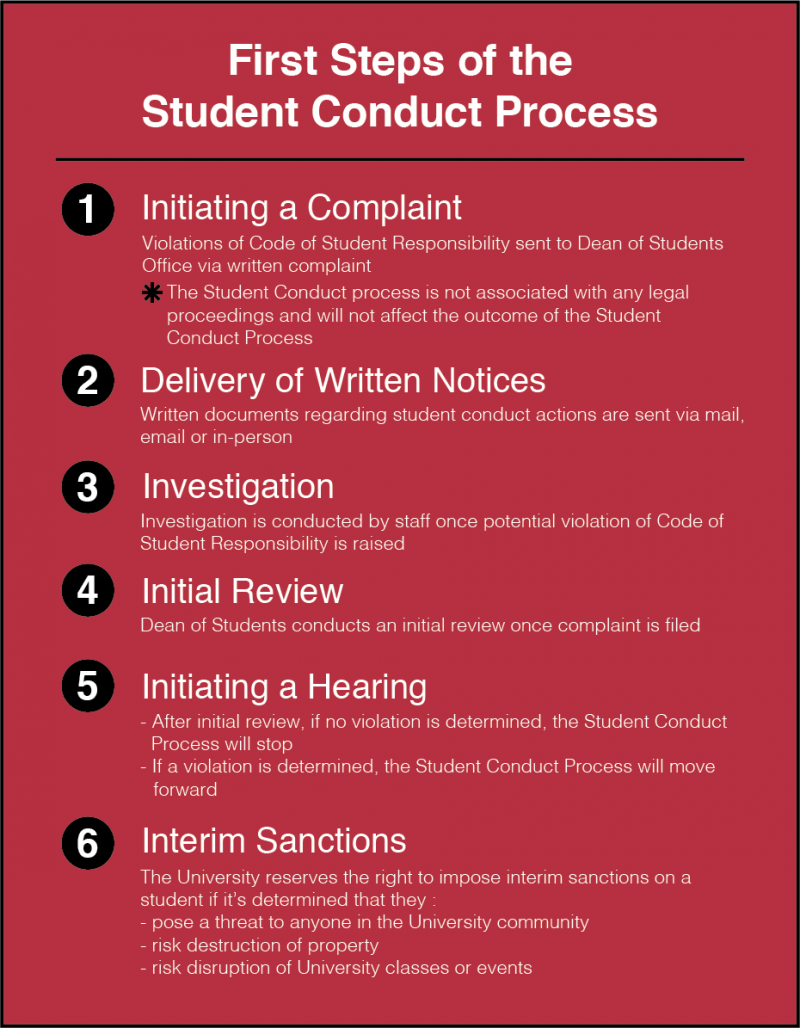 One of Anderson’s rights was to bring forward any evidence she felt would help her make her case. At her hearing, Anderson presented 10 documents—including photos of injuries, a receipt for Plan B, an emergency contraceptive, that was purchased the next day and text messages between her and the accused—that she said proved she was raped. The accused, who had the same right to bring forward documents, chose not to provide any, Anderson said.
One of Anderson’s rights was to bring forward any evidence she felt would help her make her case. At her hearing, Anderson presented 10 documents—including photos of injuries, a receipt for Plan B, an emergency contraceptive, that was purchased the next day and text messages between her and the accused—that she said proved she was raped. The accused, who had the same right to bring forward documents, chose not to provide any, Anderson said.
The panel consisted of one faculty member, one staff member and one student. All had been trained in sexual and relationship violence policies and received training on the university’s definition of consent, the “unambiguous and voluntary agreement” to participate in and moved forward with a specific sexual act or experience, according to the university’s policy page.
Though its members rotate, the panel itself has the same job: determine if there has been a violation of the code of student responsibility and act accordingly. In the case of a sexual offense at DePaul, a violation of conduct includes a student performing a sex act directed at another student “forcibly and/or against that person’s will.” They hear the evidence of both sides, as well as speak to other witnesses that either side may bring forward to make this determination.
Anderson’s therapist testified over speaker phone during the hearing for panelists to determine the plausibility of Anderson’s story. Anderson gave her testimony. She listened to the account given by the accused. She answered questions from the panelists. They asked questions about the timeline for the sake of clarity before convening to start the decision process.
The panel not only determines the likelihood of a violation, but also the sanctions for the accused.
After the hearing was over, Anderson was notified of the final decision: a two-quarter suspension. After a violent rape, flashbacks and nightmares, the accused was suspended for just two quarters. Anderson didn’t tell the accounts of her rape easily. What she does describe is violent both emotionally and physically.
 She only meant to stop by
She only meant to stop by
According to Anderson’s testimony, she was at a party last winter for her friend and classmate’s 21st birthday. She felt uncomfortable and took shots of gin, tequila and whiskey out of a votive candle holder. Anderson was handed these drinks by another guest at the party.
At 3 a.m., when guests were beginning to leave, Anderson was drunk. She stood on the balcony of her friend’s apartment while the accused held her phone and requested an Uber for her.
“At some point between that (Uber) being called and (it) coming, we kissed,” Anderson said. “I don’t remember who instigated it, but it happened. What matters is that everything after that was completely nonconsensual.”
They moved to his room, though Anderson was wary. There, as the attack unfolded, she said the student she accused threw her, bit her and belittled her.
“He told me to tell (the driver) that I would take the next one and go on and I was kind of pulled back into the apartment. And the end. He didn’t remember any of it the next morning,” Anderson said.
Anderson spent the next months coming to terms with what happened that night and trying to find a way to put her experience into words.
“I waited a really long time because I was in denial about this,” Anderson said. “I thought it was something I did when I was drunk and stupid. I thought that this was just… my friend.”
It was when she began to feel “weirder and weirder” around her former friend that she realized something might be wrong.
In the three months between the time of the rape and the time of the hearing, Anderson remembered more of what happened that night. She took pictures of her injuries, which included bruises and bite marks. She also began having nightmares and when she had gin, the drink she was given at the party, she would have flashbacks. Anderson also kept the receipts from purchasing Plan B and an Uber—which was canceled and proved her location at the time of the assault. She told former DePaul student Perry Bruno what she started to remember.
Anderson considers Bruno her best friend. He has been her “lifeline” at DePaul, through everyday problems to emergency room trips for mental health reasons. This situation was no exception.
“As time progressed, Meagan’s memory of the event returned in pieces,” Bruno said in an email interview. “She realized more and more of what actually happened, and took pictures of the injuries she suffered. As more and more details were illuminated, Meagan brought them to my attention, and we both concluded she was sexually assaulted.”
A friend familiar with the accused’s side of the situation said the accused didn’t know of any wrongdoing until he received a letter from DePaul months later, detailing the hearing. The friend, who was also at the party, doesn’t remember much of the events of the night but does remember the effect it had on the accused.
“I know that’s guilt that doesn’t leave people. It’s going to be a lifelong struggle,” the friend of the accused said. “It’s a terrible mistake and it’s indefensible, but at the heart of it, it’s a mistake. Not knowing you raped someone doesn’t make you not a rapist, but at the same time it makes you less inherently violent as a person.”
Anderson wanted the accused student to be punished for what he did. She assessed the options provided by the university and reached out to Sexual Health and Violence Prevention Specialist Rima Shah to report the assault and then Fingado to file a formal complaint.
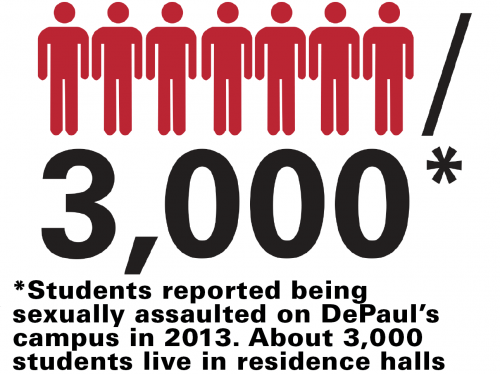 DePaul’s role
DePaul’s role
The Conduct Board Hearing Process, by which DePaul holds people accountable for violating the sexual and relationship violence policies, is similar to other conduct procedures at universities throughout the country, some of which have come under fire for their handling of sexual assault complaints.
In response, the federal government investigated the way 55 universities handle — or mishandle — the treatment of sexual assaults on campus and Title IX complaints. Title IX prohibits discrimination based on sex, which includes sexual and relationship violence at any federally-funded education program or activity.
Though DePaul was not included in the probe, how the university handles violations of its sexual and relationship violence policies — as well as how much they make known to students forthright, not just on their website — has come into question in recent years. One recent example includes the demonstration in April 2014 where a group of students dropped banners in Arts and Letters Hall protesting the university’s handling of sexual assaults.
DePaul’s 2014 annual Safety and Security Information Report & Fire Safety Report reported seven sexual assaults on DePaul’s campuses in 2013. They include assaults on campus, in public, and at the University Center of Chicago and its residential facilities. Anderson’s case is not documented in this report due to the off-campus location of the alleged rape.
According to the Rape, Abuse and Incest National Network (RAINN) someone is sexually assaulted in the U.S. every 107 seconds. Though all genders are victims, nine out of 10 victims are female. Breaking that number down further, the White House Council on Women and Girls found that on campuses across the nation, one in five women have been sexually assaulted and, despite the prevalence of “rape and sexual assault, many offenders are neither arrested nor prosecuted.”
When a student at DePaul feels they have been harassed or assaulted in a way that violates the code of student responsibility, they are presented with a few options. They can officially report the assault or harassment to law enforcement, speak to confidential support advocates like University Ministries and University Counseling Services among others, seek a remedy where the Title IX coordinator will work with the student to make their specific situation easier, or request an investigation and conduct hearing within the university.
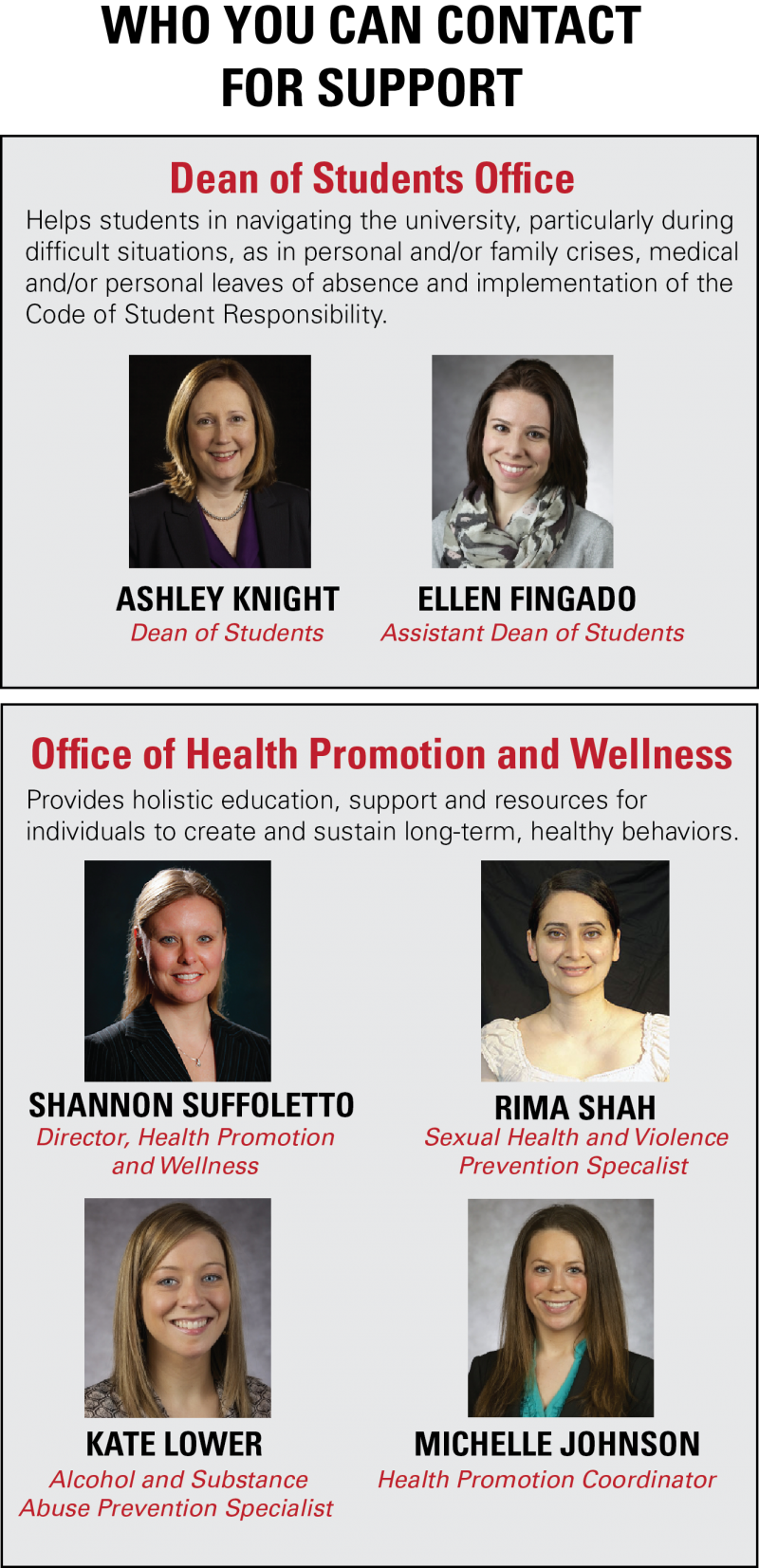 “Sometimes people would feel like, ‘If my only choice is to go to talk to some administrator somewhere, and I don’t know them and I don’t feel comfortable,’ I think that does discourage reporting,” Ashley Knight, Dean of Students, said. “We’re trying to say ‘we’re making it easier for you to talk about this.’ ”
“Sometimes people would feel like, ‘If my only choice is to go to talk to some administrator somewhere, and I don’t know them and I don’t feel comfortable,’ I think that does discourage reporting,” Ashley Knight, Dean of Students, said. “We’re trying to say ‘we’re making it easier for you to talk about this.’ ”
As Dean of Students and the former Title IX coordinator, Knight monitored all of the departments within DePaul to uphold Title IX standards, which involves prohibiting discrimination on the basis of sex. One facet of this role includes all sexual misconduct, including rape.
Title IX coordinators are required to question the university’s policies and procedures related to sex discrimination. This means abiding by federal and state law, as well as using outside information to best provide for students, according to Knight.
“We are reviewing our code of student responsibility this year,” Knight said. “So we have put together a team of people from all over the university including students, including students who served on the board before … and they are going to meet monthly over the next year and provide recommendations for any possible changes.”
In past years, both the roles of Title IX coordinator and the Dean of Students were filled by the same person. But in a new policy implemented Sept. 11, new Title IX coordinator Karen Tamburro will handle cases like Anderson’s separately from the Dean of Students.
Survivor support advocates —including Shannon Suffoletto, Shah, Kate Lower and Michelle Johnson — inform and support students, friends of victims or the victims themselves of their options and resources available on and off campus. The Office of Health Promotion and Wellness (HPW) also works closely with the Title IX coordinator and the Dean of Students to make sure there is prevention programming and communication about the laws or the resources available, Suffoletto said.
“We present a joint and united front here at DePaul for sexual and relationship violence prevention and response,” Suffoletto said.
Before her hearing, Anderson did not know about the process. This may be because resources are not sought out until students need them, Knight said. Though mentioned on various parts of DePaul’s website, including under the division of student affairs and the university catalog, information is not easily found on the home page.
The campaign for consent and rape prevention, titled “Consent: Don’t make a move without it,” is more visible and more often mentioned by student groups and on fliers students may see in passing on campus.
“Our job is to give them information so that they can choose what’s best for them. First, we make sure the person or friend is cared for, making sure they have the support and care that they need,” Suffoletto said. “Then we make sure they get the information they need so that they understand the support (and) the resources available to them and the options for them to, if they choose to, report and what that would (look) like whether legally or through the conduct process.”
For Anderson, her options didn’t provide much comfort. She felt that the hearing process would give her an opportunity to seek justice without the long months and intense scrutiny that typically come with criminal trials. But it was not an easy option.
“Picking the least painful thing in response to a trauma is just as hard as reliving it every day,” Anderson said.
Hearing in motion
During the hearing, Anderson and the accused were questioned by a panel. The questions from the panel were used to determine whether or not a violation in the code of conduct took place. Anderson said the questions asked about alcohol were too invasive, but what made her feel even more uncomfortable was how few questions pertained to consent.
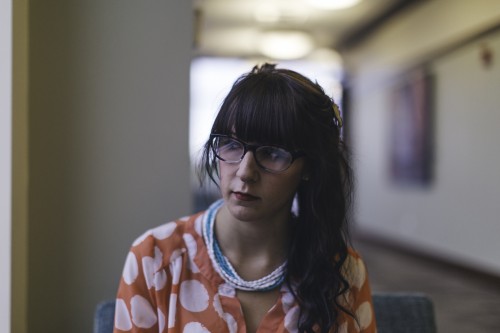
“They asked things to clarify what was in those materials and questions that came up during the hearing. It seemed like they had a basic understanding of the policies and so forth, and that they followed directions on how to do a hearing,” Anderson said. “But they didn’t ask enough about consent, which hurt because when rape cases come down to a he-said she-said, that’s where the conversation needs to turn.”
Though the school recently began using a consent slogan, Anderson said DePaul’s shortcomings demonstrate how little it understands about the situation she and other survivors are in.
“I think a lot of their failure to understand the situation and punish (the student) properly lies in the inherent inability to recognize exactly how survivors feel, and especially how they feel being put on the spot to talk about their assaults,” Anderson said.
Shortly after the conclusion of the hearing, both students and their advisors were allowed to leave the room, though the accused stayed to hear the decision. The screen came down, and Meagan received a phone call. She was told the accused was found guilty of violating the sexual and relationship violence policy at DePaul, and “the events described in the hearing,” which was violent rape, Anderson said.
The relief didn’t last long, however.
The accused student, she was told, would be allowed to return to DePaul in Spring Quarter 2016. While Anderson felt the two-quarter suspension was unjustly short, it is one of two options presented to the committee if they believe there is a significant likelihood the accused committed the offense. The first option is suspension, the length of which is determined by the panelists, the other is expulsion from the university.
There are two categories that sanctions fall into: those for students who violated the sexual and relationship violence policy and those who did not. In cases that involve the sexual and relationship violence policy, the only options considered if a violation is determined are suspension and dismissal. For other crimes, like plagiarism, a student may be reprimanded or suspended for the same length of time as the accused rapist.
Knight said that from her experience, boards will often not determine a violation occurred if expulsion is the only option. In cases of suspension, the graduation date of the victim or complainant may be taken into account, though the decision depends on the case.
“If (the board) has questions, if they feel like it wasn’t 99 percent sure, then they realize that they are impacting a student’s entire future by removing this opportunity for them to continue,” Knight said.
According to the code of student responsibility, Anderson had five days to file an appeal, which she did. Her reason for appealing was on the grounds that “new information of substantive nature, impossible for the hearing officer to have heard at the time of the hearing, has been discovered and it would be fundamentally unfair for the officer to not consider the information.” Anderson said she learned of new witnesses who were willing to come forward and verify her version of events.
Anderson implored the Dean of Students for another hearing, stating “As long as a person who has performed such a deplorable act is allowed to call himself a student here, DePaul University cannot say that it is committed to providing and maintaining any sort of safe or healthy learning environment for victims of sexual assault.”
The appeal was rejected because the Dean of Students felt that the information was not new or of a substantive nature, and that it would not be ‘fundamentally unfair for the officer to not consider,’” Anderson said, referring to the document she received.
An example of information that may have led to a new hearing would be if the results of a rape kit were available after the hearing and showed evidence of an assault; the information for the appeal would have to be unavailable at the time of the initial hearing.
Knight’s review indicated that the sanctions applied in this case “are consistent with previous student conduct cases and are otherwise fair and appropriate.” Both Anderson and the accused were ordered to have no contact with each other. Anderson said that the accused broke that order and she reported the instance to Fingado, though she is unsure of whether or not he got into trouble for it.
Now that the accused is off campus, it is uncertain how strong the no contact order will be, given that the university has no jurisdiction outside of the parameters of its campus blocks.
The university set up guidelines for the accused to follow for when he can return. Before he can officially return to the university, he must meet with a staff member from the Office of Health Promotion and Wellness, complete an alcohol and other drug assessment, as well as obtain information on healthy relationships and consent, Anderson said. A reflection of at least five pages will be due upon his return to the university.
“I sincerely hope that you have learned many things through this process that will guide you towards the success you wish to achieve,” Knight wrote to the accused in an email obtained from Anderson.
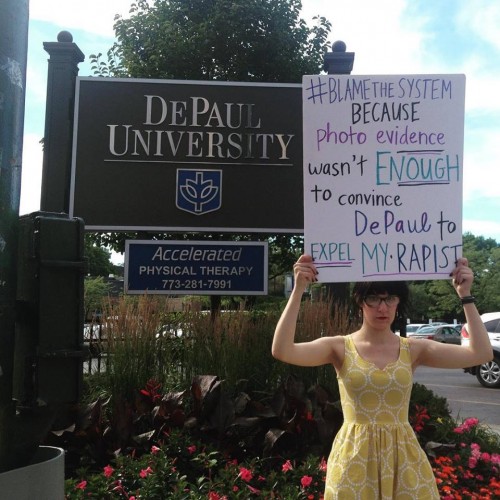
Now
Months later, Anderson is starting to find her voice outside of the conduct hearing process. In July, she attended a “Blame the System Not the Victim” march sponsored by the Feminist Uprising to Resist Inequality and Exploitation (FURIE). There she held a sign that read “#BlameTheSystem because photo evidence wasn’t enough to convince DePaul to expel my rapist.”
Strangers messaged her on Facebook, some offering support and others making rude comments. There was a Reddit post that featured personal information and a viral photo of Anderson holding her sign that circulated the Internet since the FURIE march. Since the march, and the subsequent media fallout, Anderson has been frequently accused of lying about her case.
“I’m not the kind of person who seeks attention. I brought attention to this because it demanded it,” Anderson said. “The way our school handles these things is pretty despicable.”
Many women like Anderson fear they will not be believed if they report a rape or that they will not receive justice. According to RAINN, only 3 percent of accused rapists receive jail time.
The “Making a Difference” project, conducted by End Violence Against Women International, reported seven percent of reported rape cases were classified as false. Other studies, according to the Washington Post, found the number of false reports to be somewhere between two and 10 percent.
Anderson upholds her account of the events and hopes that through her own hearing and the aftermath, she can help others seek justice. She said she is finding her voice in calling for victim support and addressing rape culture.
The university continues to work toward bringing closure to students who seek it by reassessing the services it provides. Suffoletto said that HPW does receive positive feedback, and even gratification from students thankful that resources at DePaul exist, but the goal is to ensure they are meeting the needs of the students who seek them out.
“I’m so proud of the services. I’m glad we have advocates and confidential spaces,” Suffoletto said. “We welcome (those who feel the university is not doing enough) to come talk to us so we can share what has been done, what is happening, but also hear more about what their concerns are. The door is open.”
Suffoletto said ultimately the goal of her department and those like hers goes back to presenting a united front and empowering students to help them realize that they are part of the solution. In this regard, the goals of DePaul and Anderson are similar. Both want to increase student awareness of these policies and of issues that students may face during their time here.
However, the similarities split from there. Anderson has been vocal about the conduct hearing process and how it failed to bring her closure. DePaul on the other hand, still works to make changes to provide resources to its students.
“I can’t make a group of strangers understand why I’m afraid of my shower, why I’m afraid of the 74 bus, why my body constantly feels at war with itself. I no longer feel that my skin belongs to me because of what happened. Do you know what it feels like to walk around in a body that’s been robbed of all agency?” Anderson said of the aftermath of her assault.
“I think that if people on hearing boards could be made to understand even just a little bit of what goes on in the brains of people who have experienced trauma and who suffer hourly for it, suspension wouldn’t be a viable punishment for rape,” she said. “They wouldn’t tolerate having these people on campus.”
Read the interactive story here.
Editors note: The reporters spoke to Anderson, Bruno and the friend of the accused in person, through email and via Facebook messenger. All of the reporting in this article was done over the course of three months. Though many attempts to speak to the accused were made through various mediums, the reporters never received a response. The reporters have a personal relationship with Anderson, which is how they were alerted to the story, but all attempts at fairness were made. Shelley Mesch is the news director at Radio DePaul, where the station will run a podcast of this story as well.








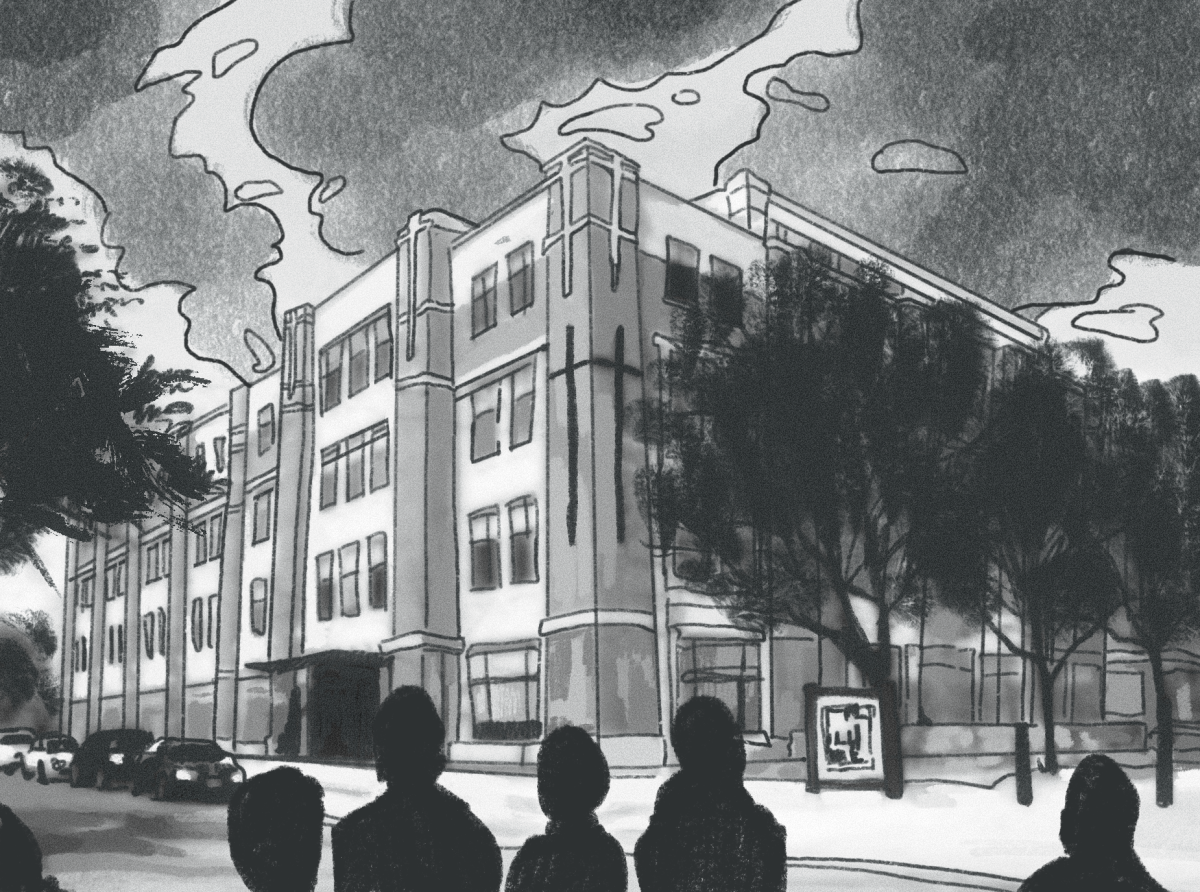

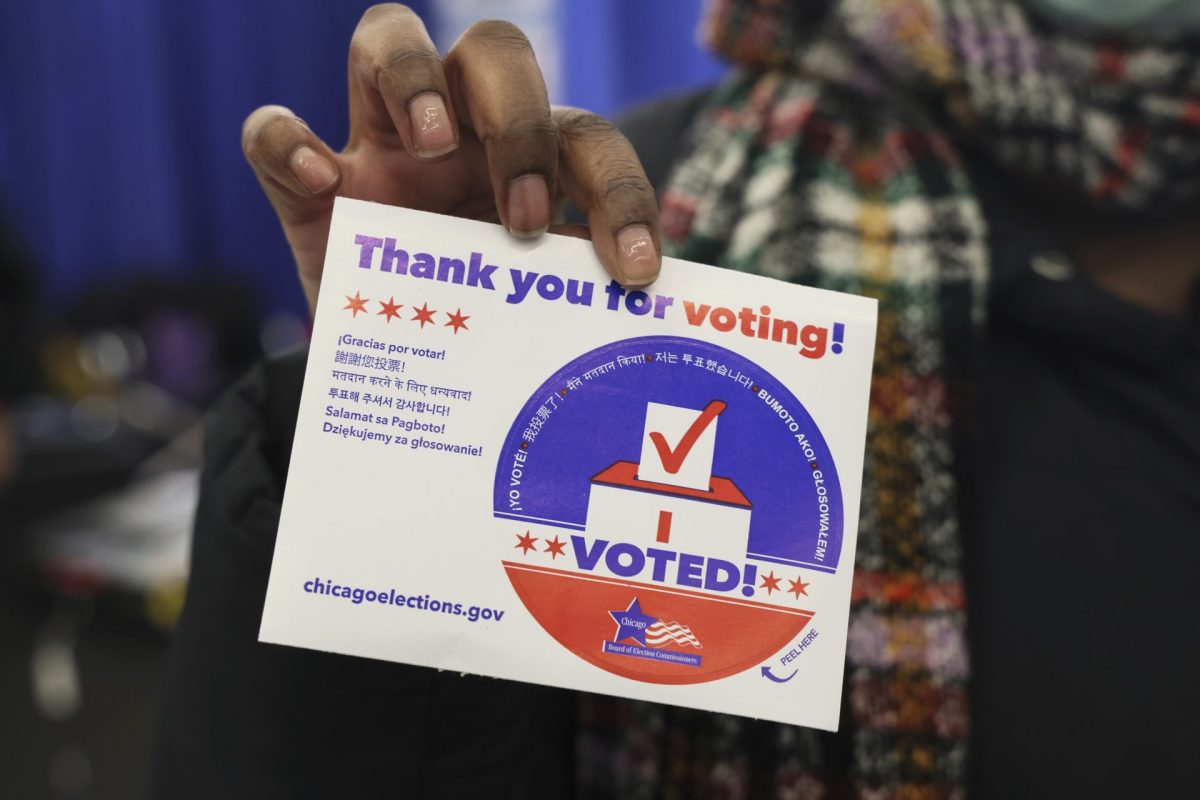
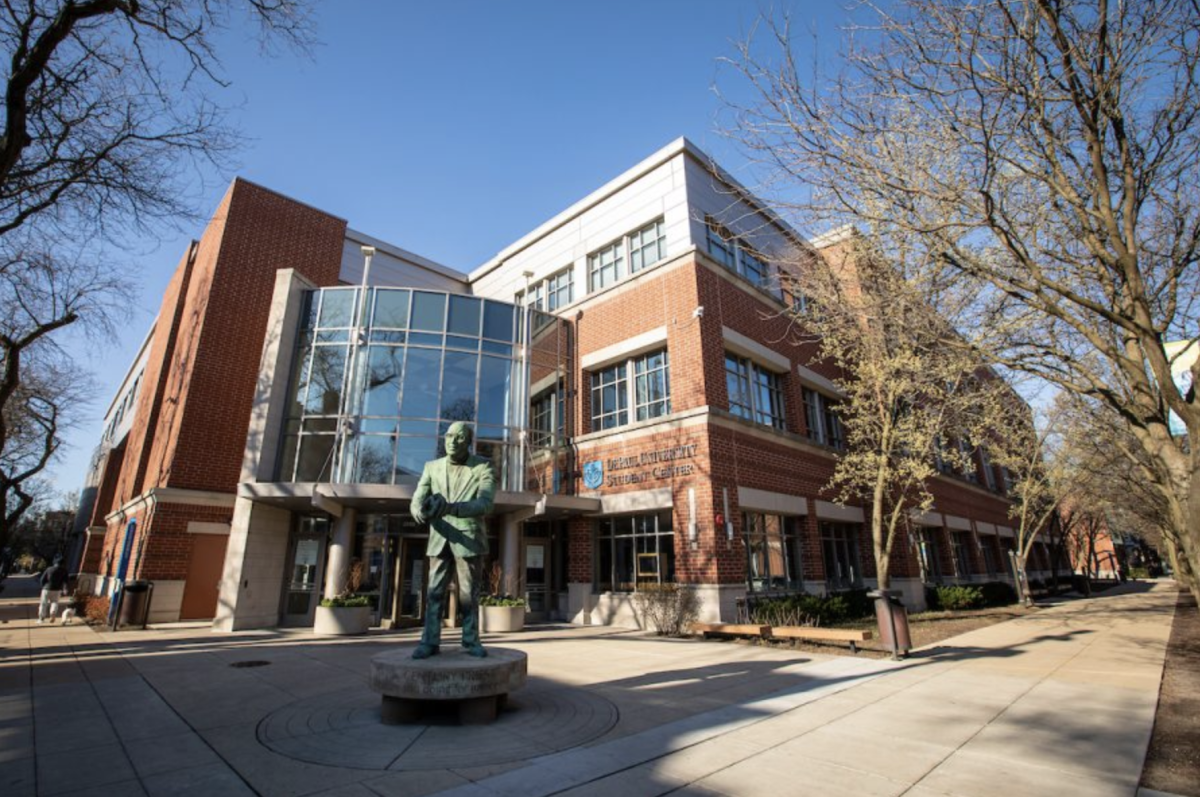
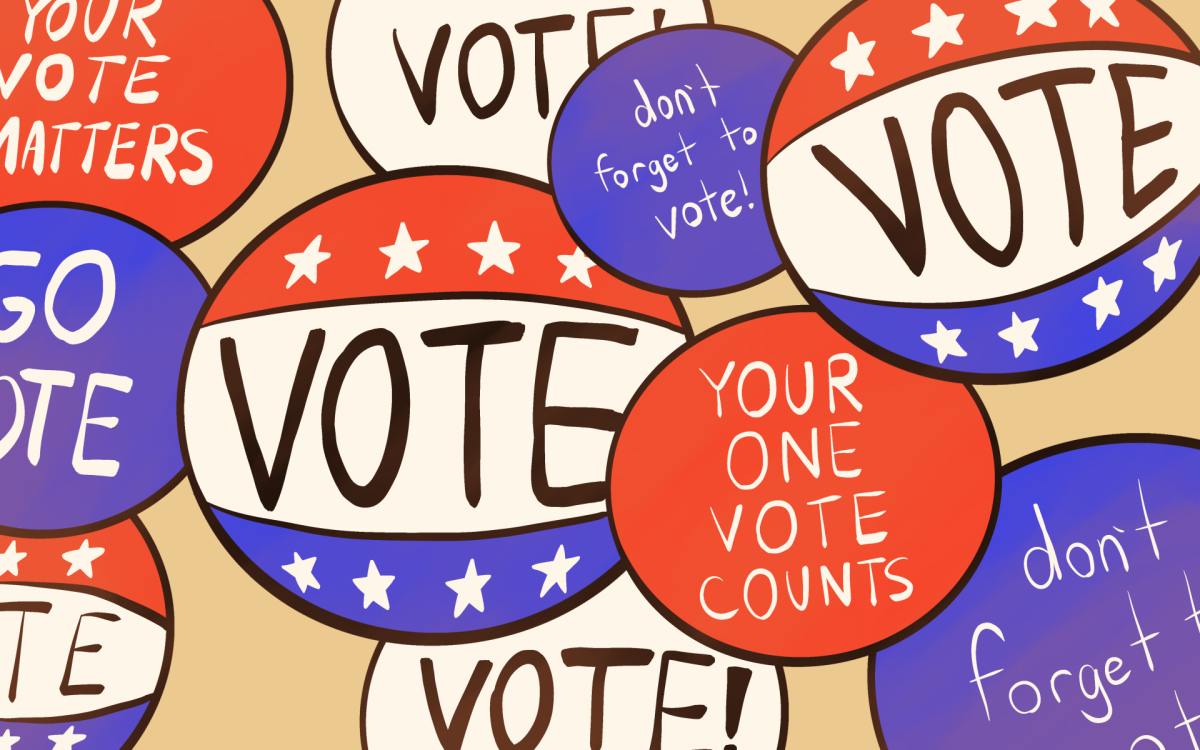

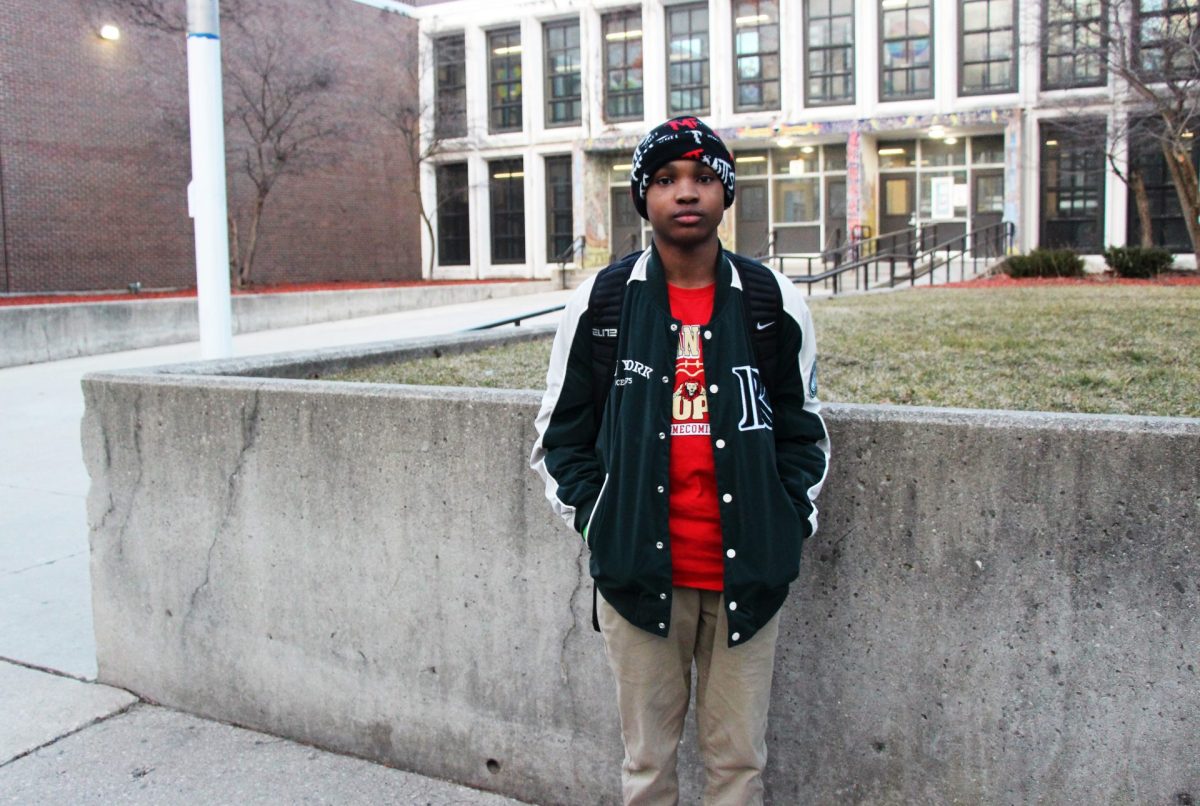
Ben Savage • Sep 21, 2015 at 5:10 pm
Powerful stuff. Well done. Interactive thingy was sweet.